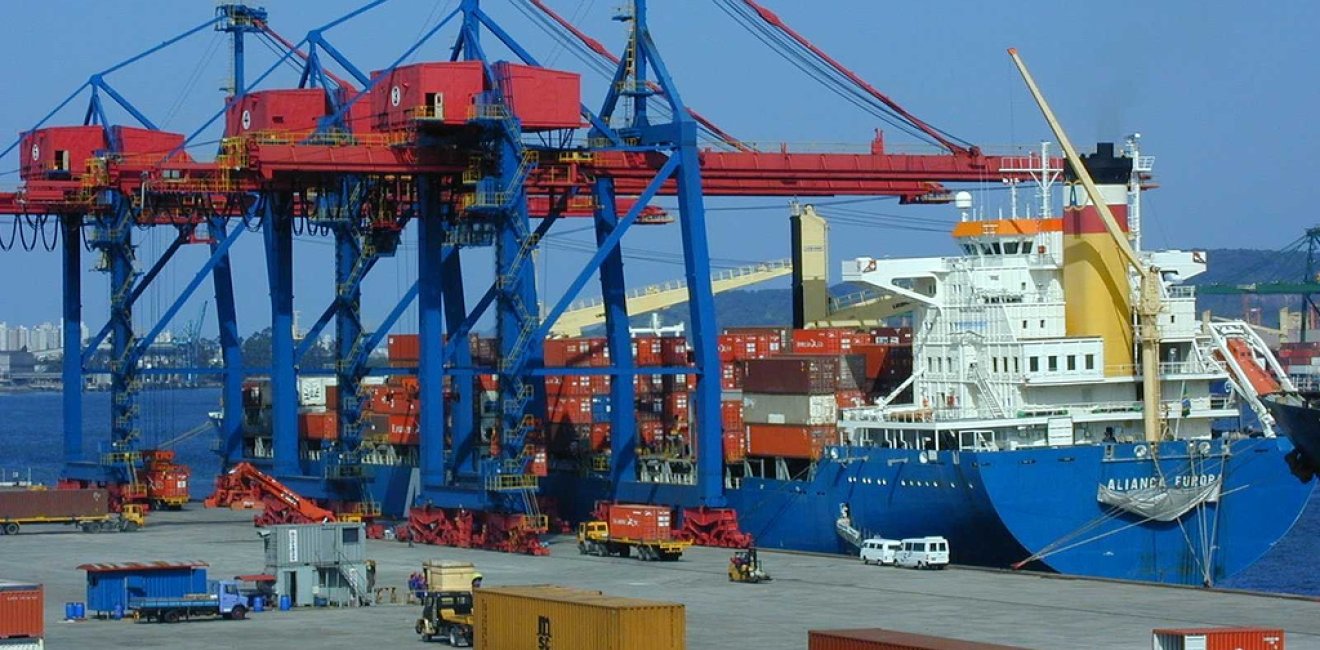
A blog of the Brazil Institute

The Brazil Institute was pleased to host a discussion on “Can Brazil Benefit from President Trump’s Trade Policies?” with Marcos Jank, Vice-President of Corporate Affairs and Business Development at BRF Asia-Pacific, Diego Bonomo, Executive Manager of Foreign Trade for the Brazilian National Confederation of Industry (CNI) , and other policy experts at the Wilson Center on February 22, 2017. To watch the event or read our summary, click here. The text below was originally published in Brazilian daily Folha de S. Paulo. To read the original Portuguese, click here.
It’s time to take advantage of the leadership vacuum and take a leading role in the world’s trade policy.
The Office of the U.S. Trade Representative (USTR) recently published President Trump's "Business Policy Agenda" for 2017. The document’s content shows that Americans may resume certain practices from the pre-globalization period of the 1990s that famous economist Jagdish Bhagwati termed "aggressive unilateralism." Roughly speaking, the United States used to decide, independently and non-reciprocally, which countries were practicing “unfair trade,” and demanded compensation under the threat of unilateral sanctions.
The resemblance to the current situation is inevitable. In the 1970s and 1980s, the reason for U.S. protectionism was the alleged unfair competition from Japan and the Asian tigers. Today the alleged threat comes from China, Mexico, and the Trans-Pacific Partnership (TPP).
While potentially damaging to the global economy, this new American protectionism could create opportunities for Brazil. But to capture its benefits, we [Brazil] must move—and fast!
We have already lost the chance to create the FTAA, our first “mega-agreement,” and excessively delayed negotiations with the Europeans. From 2008 onwards, we became orphans of the Doha Round and stopped participating in a number of the multilateral agreements that have crystallized since then, mostly under the leadership of the United States and the European Union.
With the new American position and the "Brexit", a vacuum of power and leadership has opened up. The question is, are we going to simply watch this take place or are we going to assume a leading global role?
Countries that surround the Pacific—in Asia, Oceania, and Latin America—seem bewildered, but will not remain paralyzed for long. An example is the first official meeting of the TPP after the United States’ exit from the agreement, which will take place in Viña del Mar, Chile, on the 14th and 15th [of March]. China and South Korea have already confirmed their presence as observers. Therefore, Brazil and Argentina cannot lose this opportunity to understand what the TPP will become and to figure out how to position themselves. Mexico, which could take the reins of this process, finds itself paralyzed by the “renegotiation” of NAFTA.
The fact is that, contrary to what seems to be happening in the United States and the European Union, Asia and the more dynamic economies of Latin America continue to want to integrate themselves more and more.
In addition to the twelve TPP countries that will meet in Chile, there is potential for the integration of the 21 countries of the Asia-Pacific Economic Cooperation (APEC) and the 16 countries of the Regional Comprehensive Economic Partnership (RCEP), an Asian mega block officially led by the Association of Southeast Asian Nations (ASEAN), although unofficially led by China. Therefore, there is plenty of room for Brazil in this region, which is home to 60 percent of the planet's population.
In this context, the Brazilian government should actively participate in the TPP meeting in Chile, understand the new global trade dynamics, and advance as quickly as possible a strategy of negotiating new agreements.
Asia is seen as the great window of opportunity for global integration in agribusiness, accounting for almost half of the sector's exports. Trade and bureaucratic barriers impede the growth, diversification, and added value of our agro-industrial exports to the continent.
The industry sees more immediate opportunities in Europe, the United States , Canada, and the Pacific Alliance (Mexico, Colombia, Peru and Chile). However, it is important for the industrial sector to look to Asia more as a source of gains than of trade losses. Japan and India are two examples, and there are business and investment opportunities that remain underexplored with other TPP members— Australia, Singapore, New Zealand, Malaysia, and Vietnam.
Agriculture is a fundamental and dynamic part of Brazilian industry. The interest in expanding trade and investment is convergent in these two sectors, as well as the demand for the country to take advantage of the leadership vacuum in trade policies and assume a presence and leadership on all possible negotiating fronts.
As the Latin phrase “tempus fugit” states, the time for action is now.
Marcos Sawaya Jank is a specialist in global agro-business issues. He is a bi-weekly Saturday columnist for Folha.
Diego Bonomo is the Executive Manager of Foreign Trade for the Brazilian National Confederation of Industry (CNI).
Author
Explore More in Brazil Builds
Browse Brazil Builds
They're Still Here: Brazil's unfinished reckoning with military impunity



